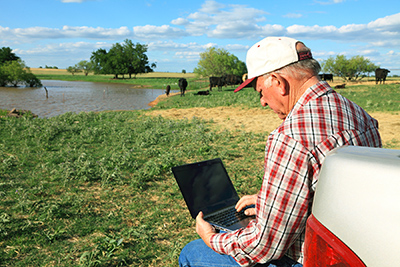One Broadband Bill Goes To Governor, Second Awaits Final Vote

A bill aimed at improving rural access to broadband services won final passage in the Alabama Senate this week while a second cleared a House of Representatives committee.
Gov. Kay Ivey is expected to sign HB 400 by Rep. Randall Shedd, R-Cullman, which would allow electricity providers to use existing easements for the installation and operation of high-speed internet systems. The Senate passed the measure Wednesday by a 28-0 vote.
Meanwhile, the House Ways and Means Education Committee gave a favorable report to SB 90 by Sen. Clay Scofield, Red Hill. It would enhance the Alabama Rural Broadband Act, which was signed into law last year.
SB 90 would change the definition of an “unserved area,” increase the percentage of project costs eligible for funding, and broaden the permitted use of other federal and state support, including loans and grants. The measure would increase the minimum service threshold for broadband to 25 megabits per second download speed and 3 megabits per second upload. An unserved area would be defined as any rural area not served by at least one terrestrial broadband service providing the minimum level.
SB 90 would allow grants to cover 50% of project costs, up from 20%. The bill also allows the state grants to be combined with federal funding, not to exceed 90% of project costs. In addition, the bill would allow grants to be provided for “middle mile” projects needed to bring enhanced broadband to unserved areas.
Senate President Pro Tem Del Marsh, R-Anniston, told Yellowhammer News passage of rural broadband legislation has been a priority this legislative session.
“These are the two bills that will help us… provide for our citizens, who I believe consider the broadband infrastructure a ‘No. 1 issue’ for the state of Alabama,” he said. “It will have great impact on all of our education… as well as economic development.”
